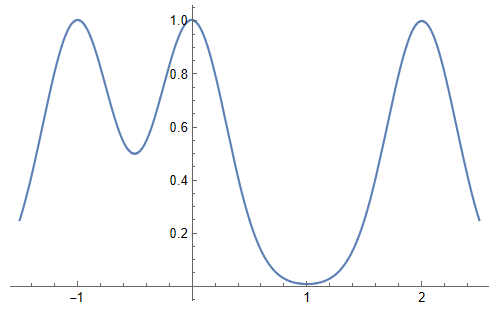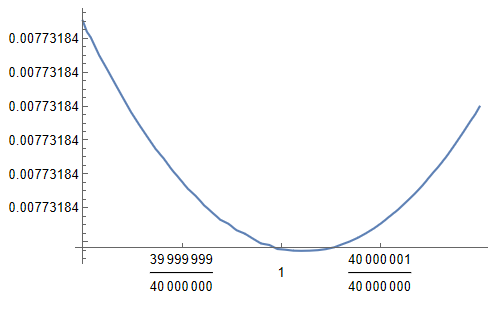Density of Gaussian mixture with $n$ components is given by:
$$f(x):=C \sum_{i=1}^{n}e^{-\frac{1}{2}||\frac{x-x_i}{h}||^2}, x_i \in \mathbb{R}^d, h > 0$$
where $C$ is a normalization constant ensuring the total integral over $\mathbb{R}^d$ equals one.
Its critical points are implicitly given by:
$$x^{*}_h= \frac{ \sum_{i=1}^{n}e^{-\frac{1}{2}||\frac{x^{*}_h-x_i}{h}||^2}x_i }{ \sum_{i=1}^{n}e^{-\frac{1}{2}||\frac{ x^{*}_h -x_i}{h}||^2} }$$
Assuming that for all small positive $h, ||x^{*}_h - x_1|| < ||x^{*}_h - x_i|| \forall i \ge 2,$ it's easy to see that:
$$x^{*}_h \to x_1, h \to 0.$$
My question is about the order of this convergence in terms of $h,$ i.e. what can we say about the order in terms of $h$ that the quantity $||x^{*}_h - x_1||$ converges to $0$ as $h\to 0?$ Is it for example $O(h), o(h), \Theta(h)$ etc? A precise bound will be great, but some others would be appreciated as well!


